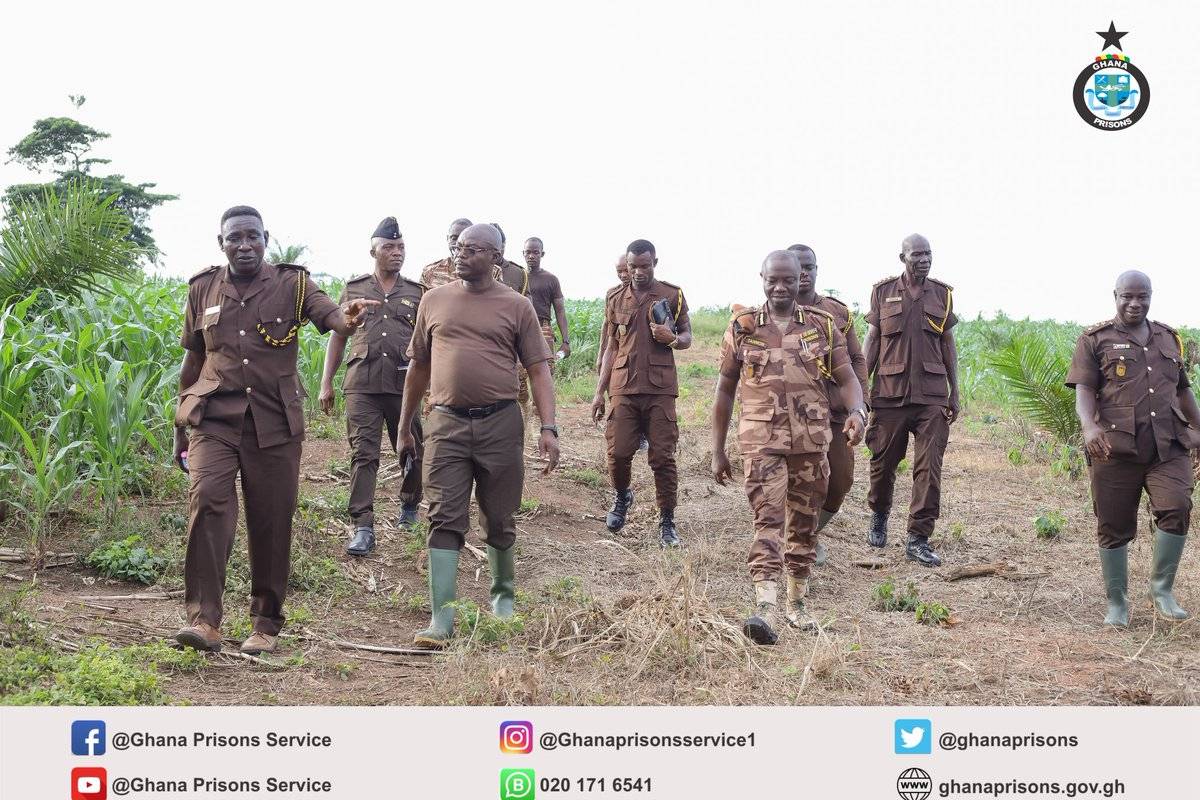The Ghana Prisons Service educates officers on agriculture.
THE Ghana Prisons Service's efforts to improve its agricultural initiatives and contribute to the sector's development are on track, according to the Rector of Prisons in charge of agriculture, Hanson Kwame Adu Awuku.
Already, 22 of the service's agric stations have received agricultural revolving fund support to engage in crop and tree production such as maize, rice, vegetables, cowpea, soyabean, cassava, cocoa, oil palm, woodlots, and livestock such as pigs, rabbits, sheep, goats, grasscutters, broiler production, and aquaculture.
According to Mr Awuku, the investment was made to demonstrate that agriculture was the backbone of the service, as the venture's products supplemented inmates' ration bills.
He was speaking at an agriculture training program for a select group of officers.
The training was conducted in collaboration with the University of Ghana School of Agriculture as part of the Design Thinking Approach (BRADETA) project.
Its goal was to increase the capacity of nonagriculturally trained officers in the service to supplement the government's inmate ration, as well as to provide skills and funds to carry out agric-related expansion activities.
The officers, drawn from various stations such as Kenyase, Kpando, Amanfrom, Adwira, and Jamestown, would be taken through theory and physical modules to adequately boost their knowledge of agricultural studies and practices.
Station for farming
Mr Awuku explained that the training program was designed to train non-agric staff in basic agriculture in the service's five farming stations.
He stated that over the years, the service has played an important role in the country's internal security by keeping its clients safe and ensuring public safety.
However, international best practice advocates a deviation from the old warehousing of inmates to the provision of beneficial skills which, he said, was part of their mandate in the provision of reformation and rehabilitation and vision of the current administration to increase internally generated fund through agriculture.
Thus, the training was an investment in the officers' capacity to plant maize, rice, and cassava, among other crops.
"Aside from the skills acquired by inmates in our farming stations, agriculture has been the backbone of the Ghana Prisons Service as products from the venture supplement inmates' government ration bills," he stressed.
Mr Awuku revealed that efforts were being made to increase the value of cassava and palm fruits by processing them to produce gari and palm oil, respectively.
As a result, he pleaded with the course participants to take the intensive training seriously.
"Though not examinable, the service requires a high level of professionalism and discipline from you during training," he added.
Readiness
Professor Irene Egyir, Dean of the School of Agriculture at the University of Ghana, commended the service for taking up the initiative, stating that the service was known for its farms across all regions where they engaged in livestock, poultry, crops, cereals, legumes, and other agricultural activities.
She explained that the training was part of an effort to increase the number of agriculturally trained officers in the service and strengthen their capacity to engage in agriculture in the right way.




No comments yet
Be the first to share your thoughts!